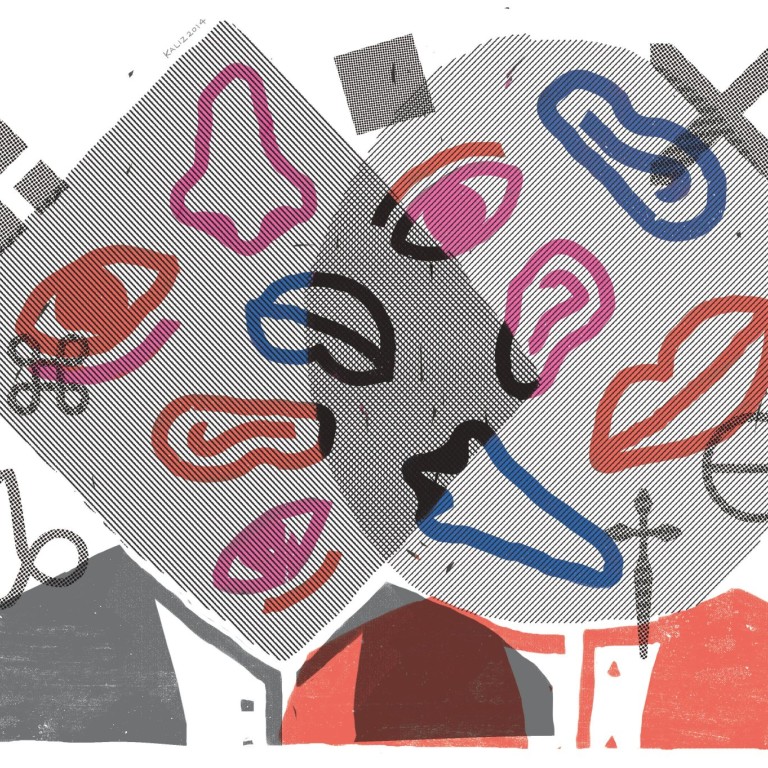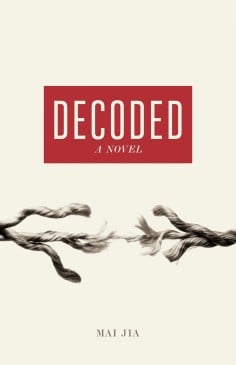
Mai Jia's newly translated first novel gives readers a glimpse of enigmatic China
Mai Jia's first novel to be translated into English is challenging, but leaves readers wondering about China, writes James Kidd
Decoded
by Mai Jia
(translated by Olivia Milburn and Christopher Payne)
Allen Lane
4 stars
The hero of , Mai Jia's first novel to be translated into English, is Rong Jinzhen, although readers might spend much of this ambitious, unsettling and extraordinary story wondering whether hero is the right word.
Quiet, self-contained, perplexing, solitary, remote, sober, seemingly asexual (though his wife might disagree), Rong does little of note, at least in terms of action. "Due to his profession and overly cautious nature, to say nothing of his fear that something might happen, Rong Jinzhen was trapped within a valley of secrets … he had a singular attitude - stiff, almost suffocating. His only joy was to pass the time in a world of the imagination."
In Mai Jia's China, there is always another layer of meaning, another higher authority
Rong is that tricky literary hero: the genius, whose mind is both the setting and the means for his triumphs, struggles, fears and downfall. In a way, his enemy is the rest of the world and everyone in it, who distract him from his purpose in life. His journey through is perhaps best expressed as a series of mental states: from innocence through the development of his capacious intellect to a breakdown that borders on insanity.
This is a novel not of thought, word and deed, but rather one where thought and word are deed.

Having distinguished himself as the foremost mathematician in a dynasty of wondrous mathematicians (his ancestor, "John Lillie", set up the world-famous N University), he is co-opted by the Chinese government to crack a series of apparently unbreakable ciphers.
This will either derail or save him from his true destiny, at least according to his mentor, Jan Liseiwicz, who wants his protégée to advance the field of artificial intelligence. Rong's story is mainly set in the 1950s and '60s when robots feel both imminent and impossibly exotic. Yet duty to his country beckons, or is forced upon him in the imposing figure of Zheng the Gimp. "If they want me to go, I don't have the right to refuse," Rong says to his distraught family.
However, it emerges Rong and cryptography are made for each other. The limitations and skills that separate him from other people combine to make him the perfect cryptographer. But faced with "Purple", the cipher to end all ciphers, he appears to do anything but decode the code. He plays chess with a lunatic (a former codebreaker who lost his mind to his work), reads history, interprets his colleagues' dreams (another Rong family speciality) and, most worryingly of all, turns to novels. His time-wasting is all in a good cause, and he eventually unites his arcane researches to crack Purple.
Quite what Purple is, and why the government is so afraid of it, remains mysterious, at least until 's self-conscious finale, which proposes conspiracies within conspiracies and fictions within its own fiction. This suits the furtive, paranoid mood of the story as a whole. Details of Chinese history occasionally intrude upon the action - the KMT, the Cultural Revolution, Mao Zedong - but mostly they remain vague, after a Kafkaesque fashion. Liseiwicz defects to "X country", one of China's enemies. It could be Japan, but it's never made clear. The urgency of Rong's work is constantly impressed upon him and us, but the reader never learns precisely what is at stake.
As the chapters circle ever wider, Rong emerges as a secretive secret-breaker working within a secret called China. His workplace, Unit 701, is a world unto itself, divorced from contact with mainstream society. Here, there is always another level of mystery, just as there is always another cipher: "Black" follows Purple, not unlike a bruise slowly darkening.
Mai Jia's fictional tactics enact these plot devices. The conventional opening - a family history - is gradually radicalised by a whirl of different voices. There is a narrator, whose identity does not emerge until that meta-fictional final section, and even then his own role is unknown. This inescapably subjective report is regularly interrupted by other commentators, all giving their point of view on Rong's life and motivations. The partiality of these monologues is enhanced by the "[to be continued]" that concludes many of the sections - the soap opera cliff-hanger is both a narrative hook and a reminder that there is always more to know.
Just as intriguing and effective are the different ways Mai Jia's narrator tells the story. There is a linear narrative that could just about be stuffed into the thriller straitjacket. But 's bewildering array of styles includes the list (of which our narrator is fond) and even mathematics. The first sign of Rong's future talent is when his dying "daddy" (in truth a family friend named Auslander) asks him to "calculate how many days there are in eighty-nine years and then bury me with that number of pear flowers". Rong (then called Duckling and soon to be known as Jinzhen) does a fairly amazing job for a child, but is distraught when he later learns he has neglected to factor in leap years: 6,241 seconds per year. A man's entire existence has been measured as a series of figures. Is this all we add up to?
The resulting mosaic demands questions even as it seems to provide an answer. These fractured meanings also help Mai Jia create a palpable sense of paranoia filling both Unit 701 and China itself, a secret state terrified by secrets.
Each code cracked only exposes new codes to confuse and terrify.
Mai Jia's boldest gambit is to make a virtue of this in the novel's fifth and final act: "All the various mysteries and secrets included in the previous four sections, even though they might have lacked a certain splendour, will have their true brilliance revealed in what follows," our narrator writes. The effect is rather like a magician sawing a woman in half in a Perspex box, but still expecting applause. Mai Jia's intention is not to show off, or even show Rong's working. Instead, demands that we turn our sceptical attention to the truth of the text before us.
Maddeningly, the challenge or perhaps the danger is discovering what we can trust. So Mai Jia's final section offers apparently conclusive answers to some of the questions his labyrinthine plot has thrown up. Who is behind Purple and Black, and what is their motivation?
Yet instead of clarity, we are faced with elliptical and - ironically - personal declarations by Rong. Some are about his relationship with ciphers: "The road you walk may lead them to heaven but it will take them to hell. The things you have achieved are indeed fewer than those you have destroyed." There are surprisingly tender descriptions of his wife: "She works more than she speaks and everything she does is done in silence, just like the metronome… Her silence could be smelted into gold." Indeed, Mai Jia seems to remind us never to discount personal motivations even in the grandest of narratives.
is a challenging, absorbing and rewarding novel. Ten years in the writing, it was finished more than a decade ago but feels oddly fresh. There are some signs of wear and tear in its postmodern tactics: the fiction that declares its fictionality only to lead the reader on a wild goose chase. But these games make their point: in Mai Jia's China, there is always another layer of meaning, another higher authority. Rong's sudden conviction that his victories and defeats are part of a wider narrative - he calls this God - give a sense of the enigmatic claustrophobia at the heart of the nation's political and security elites.
A final irony: Mai Jia worked for almost two decades as an intelligence officer in the People's Liberation Army. Like Rong, he also has another name: Jiang Benhu. Yet read as autobiography at your peril. It's just what they would want you to do.

